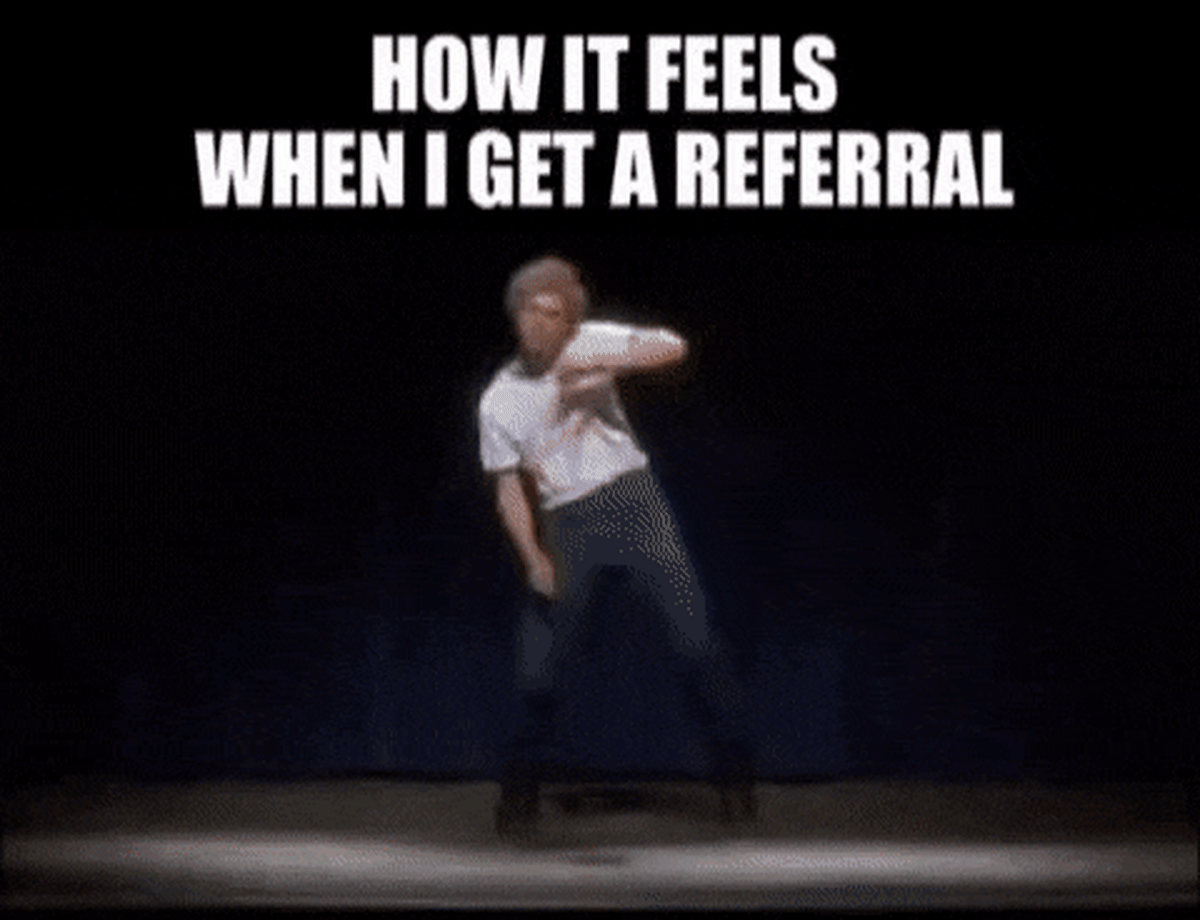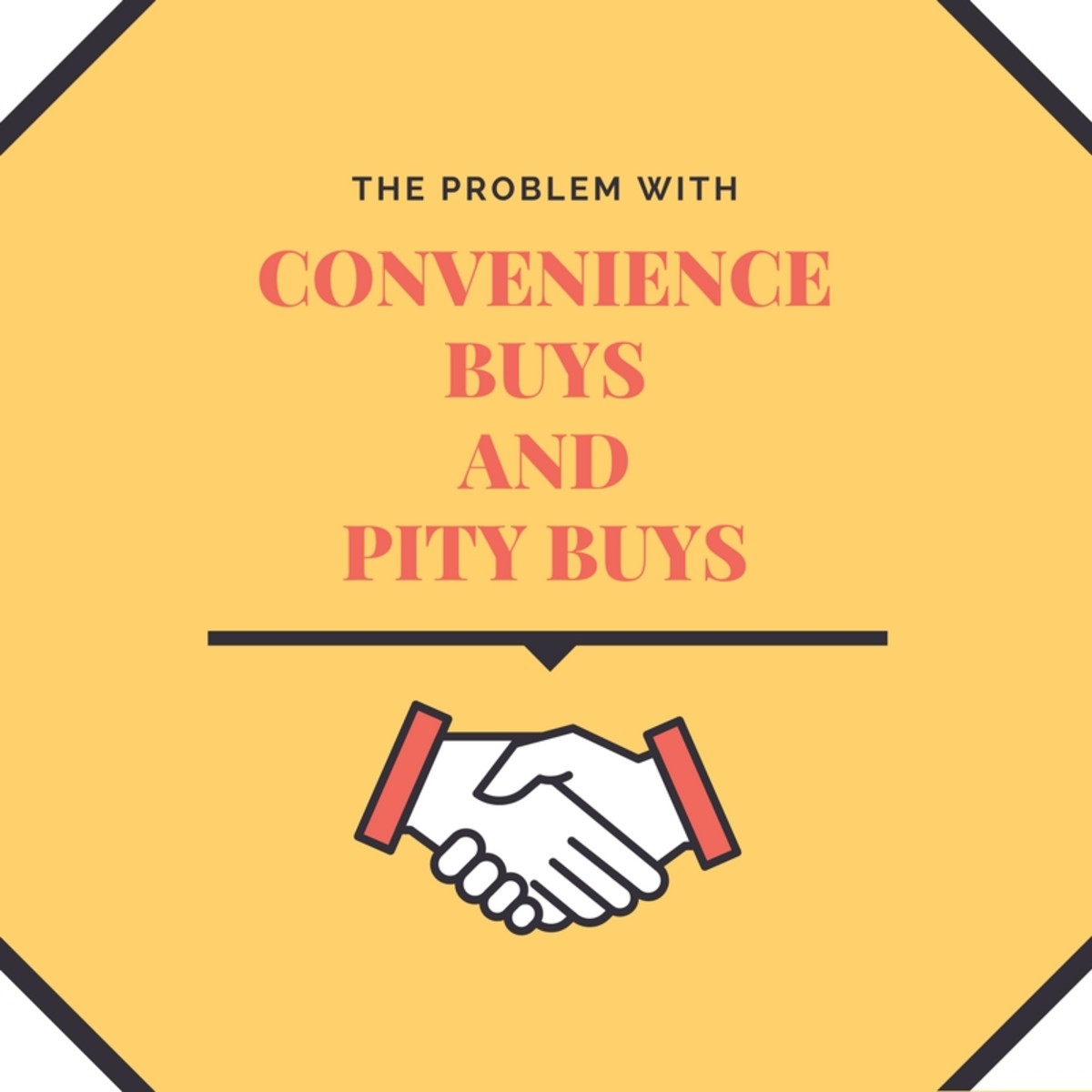- HubPages»
- Business and Employment»
- Marketing & Sales»
- Sales & Selling
Networking Tips for Getting Better Referrals for Your Business

In Networking Tips: How to Give a Good Referral, I talked about "giving" bad referrals. But what about "getting" bad ones? What should you do? And, more importantly, how can you decrease the number of junk referrals you get and increase the good ones?
Dealing with Bad Referrals
This is tough! As I talked about in the earlier referenced post, I'm so thankful that caring people in my network have thought well enough of me to refer me to their family or friends. But if who they're referring is a bad fit, my response will go from "meh" to "What's the least painful way to deal with this, for both them and me?"
As non-committal as this sounds, how I deal with bad referrals I receive depends on several factors including:
- The Person Referring. Is the person referring me someone whose feelings will be hurt badly when they realize that they've given a bad referral? I'll handle both the referring party and the person being referred with some TLC and diplomacy. Is this person still new to the networking arena and someone who doesn't have their opportunity identification skills honed yet? This could be a great teaching moment... again, delivered with a dose of TLC. Or is this person just trying to impress either me or the party being referred? I'll have to be very clear with that person about my needs and how I would like to handle the current and future referral situations.
- The Person Being Referred. If the person being referred, even if not an ideal sales prospect, is someone I truly would like to connect with, I may make the connection, but be very clear that I may not be a good fit for the current need. I may also offer some suggestions for other suitable resources. That way both I and the person who referred me look like heroes.
You Might be the Reason Why You're Getting Bad Networking Referrals
This might be difficult to hear, but you may be causing those bad referrals. Yes, YOU!
I learned this lesson while I was transitioning my business to self publishing coaching from being in a couple different businesses for many years. Started out by telling people I was a "marketing coach." Am I? I sure am. I help speakers, coaches and consultants use self published books and blogs to build their brands. But when people heard "marketing coach," they immediately associated me with those who do social media marketing, SEO consulting, direct mail, Internet advertising (such as Google AdWords)... and the list went on.
Adding to the problem was that I also was telling people that I worked with small business. Huge mistake! Are the businesses I work with small? You bet! Usually, they're one-person micro business operations. But as soon as I said "small business," I started getting referrals from and for multi-level marketers and lots of local personal service businesses, none of which I can help.
So how did I beat the bad referrals? I had to be very specific about the kind of business and the kind of client I wanted. When I revamped my networking "story," I started getting more referrals and, more importantly, more relevant ones.
It starts with you.
Getting Your Referral Story Straight
To get people to respond and refer to you correctly, you've got to get your "story" straight by being clear about:
- What You Do. Just as I wasn't giving people anything to go on when I said I do marketing, you can't be vague when you say how you help people. Be very clear about the exact products or services you offer and/or the results that you help people achieve.
- Who You Help. Your networking partners need to be able to visualize someone that you could help. For example, saying that you work with women is so vague that people can think of too many possibilities and get overwhelmed... and overwhelm you with a lot of irrelevant referrals. Saying that you work with women who are over 40 and thinking about starting a different career would be easier for people to peg.
- How You Would Like to be Contacted. This is important! For example, because I need to set aside around a half hour to talk to a potential client prospect, I do NOT want to be randomly contacted by phone. So I ask that my networking partners introduce me to potential clients via email first. Then both I and the referred party can schedule a mutually agreeable time to talk and be prepared to give proper attention to the conversation. On the other hand, your business may be very dependent on selling over the phone and/or be an on-demand service (like pizza places, towing services, etc.). Then giving out your phone number might be appropriate. Don't presume people will know how to refer you.
- Your Business Card. Your business card should tell potential clients and referral partners ALL of the above.
- Being in the Right Networks. Another important aspect of the referral process is being in the right networks that know or include the kinds of people you want to meet. This sounds so obvious. But it's amazing how many times I'll meet someone at a networking event and wonder why he or she is even there. Hey, I've wondered that about myself at some events, too. For example, many small business people join their local chamber of commerce. Logically, that's a great idea. But if the small business' clientele is nationwide or international, this may not be the best venue. It might take some trial and error visits to various groups (either in person or online) to discover those that work. Save time and effort by only participating in networking that puts you in touch with those who are relevant to you and your business.
This article is accurate and true to the best of the author’s knowledge. Content is for informational or entertainment purposes only and does not substitute for personal counsel or professional advice in business, financial, legal, or technical matters.
© 2016 Heidi Thorne








